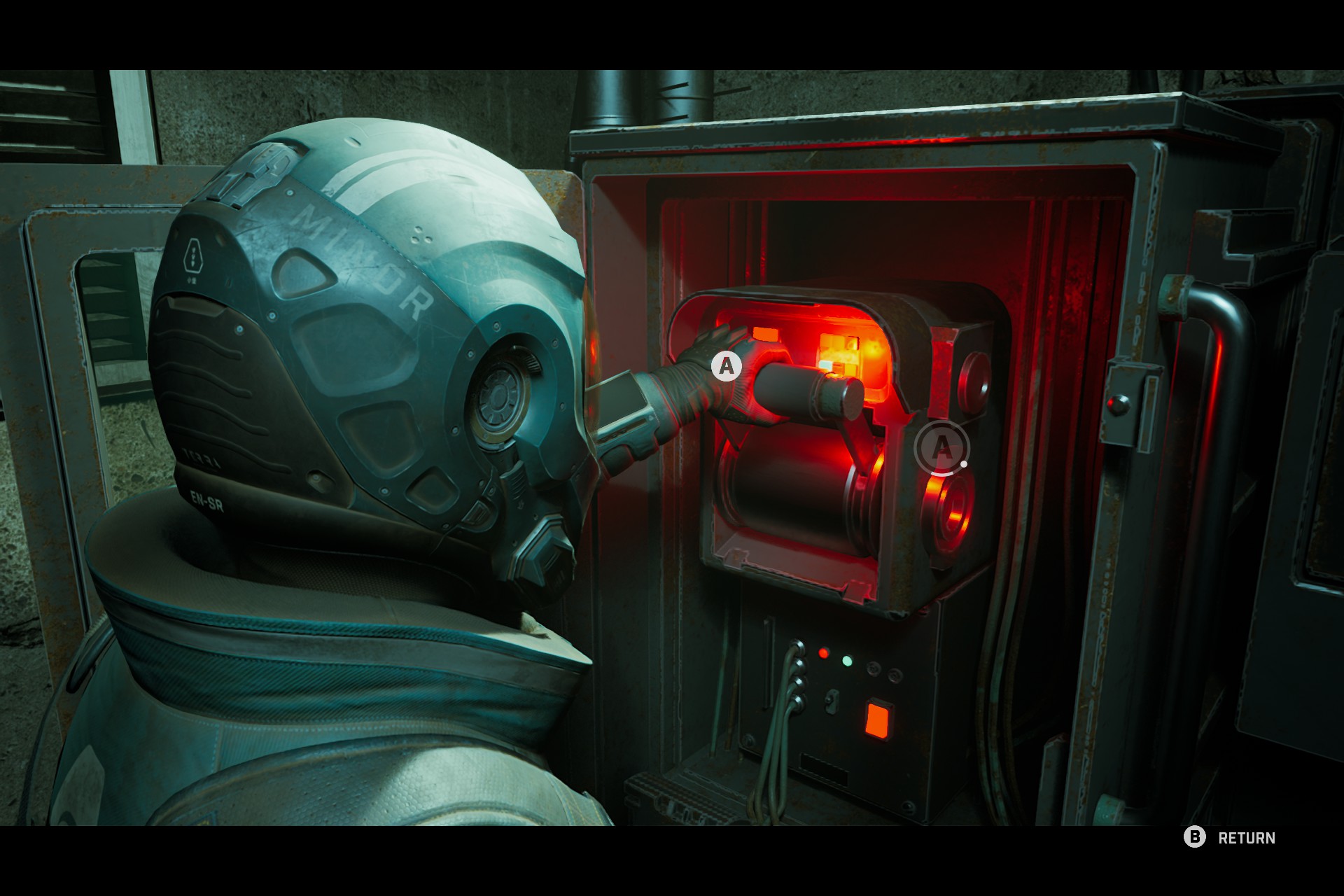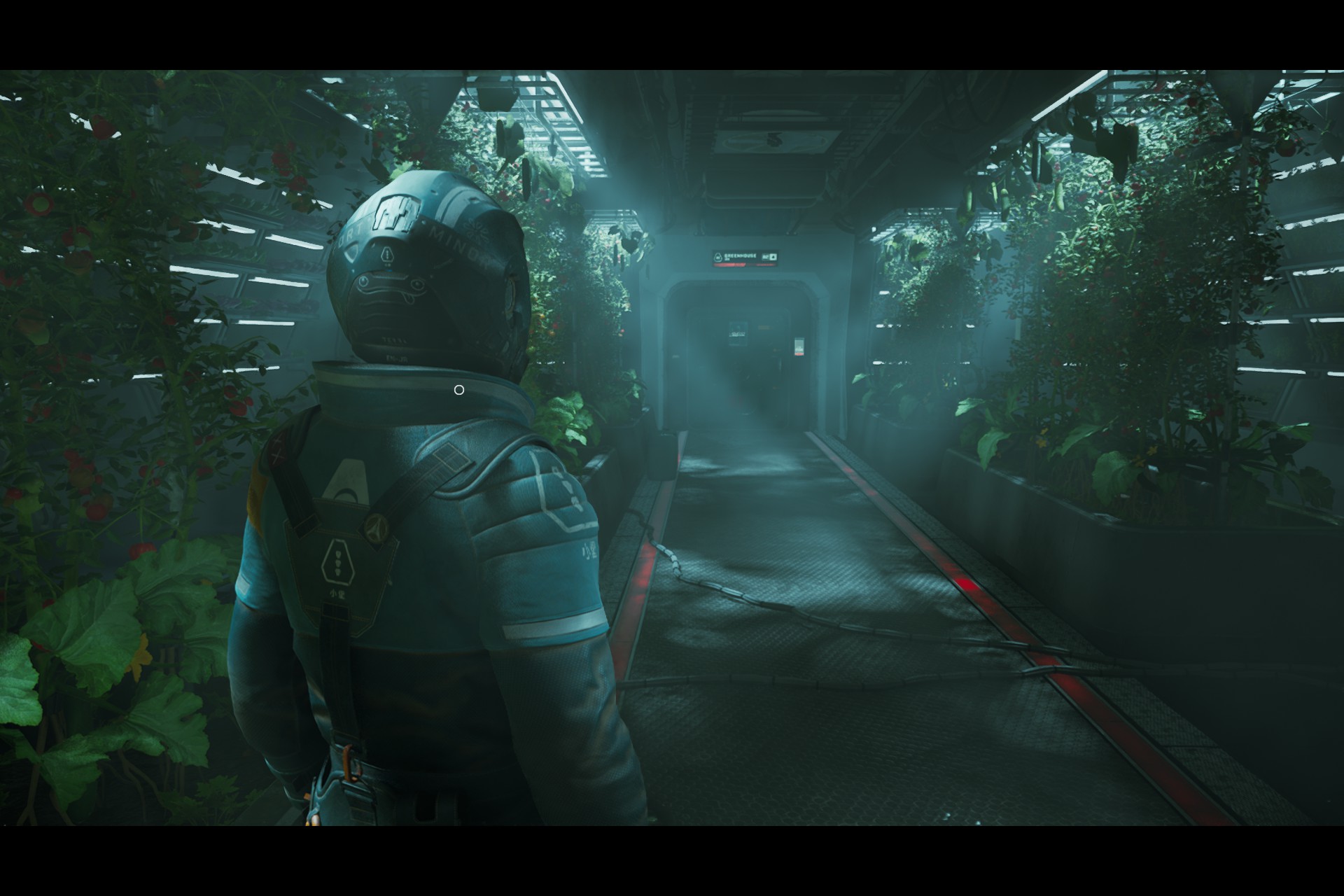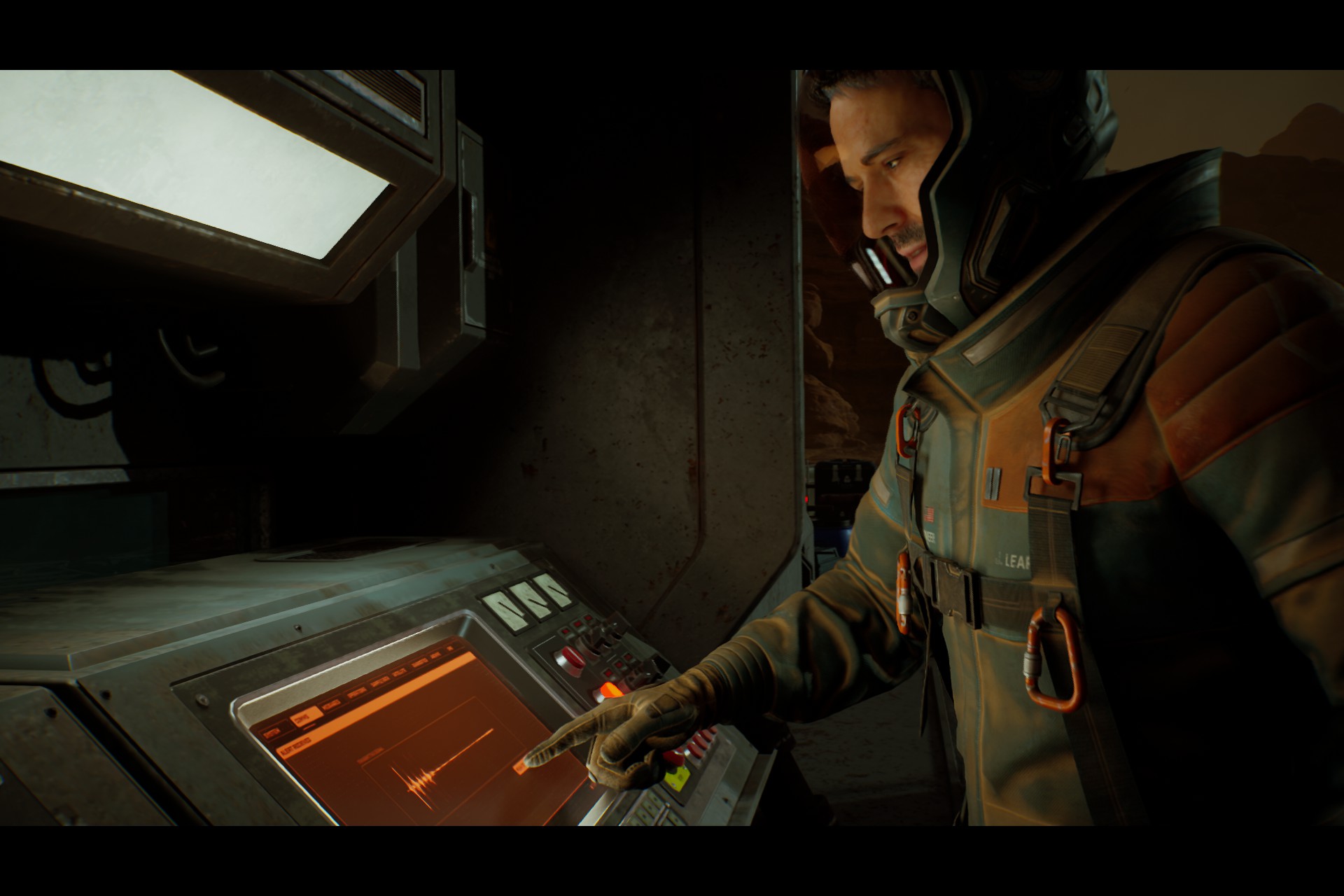
What is it? A compact narrative-led thriller set on Mars with triple-A production values.
Release date August 22, 2023
Expect to pay TBC
Developer Fallen Leaf, Black Drakkar Games
Publisher Dear Villagers
Reviewed on RTX 2070, i7-10750H, 16GB RAM
Steam Deck N/A
Link Official site
Is that it? My reaction on polishing off the last chapter of Fort Solis was consistent with much of what I’d felt throughout. Descriptions of this debut venture from Fallen Leaf contain words such as ‘thriller’, comparisons to Netflix miniseries, and promises of exploration, nerve-wracking set pieces, a deep plot, and triple-A production values. While it emphatically ticks that last box—it looks and sounds very impressive—I’m baffled as to what happened with the rest of the brief.
Imagine you sat down for a four-part thriller on Netflix, and the entire first episode focused on a man ambling about a research facility on Mars, trying to figure out which doors are locked and which aren’t. Would you proceed to episode two? Sure, he occasionally picks up an object and makes a wry comment about it. Sometimes he indulges in a little banter over comms with his colleague back at base. But there’s no escaping that this is a plodding opening episode, literally, as your man trudges from room to room and back, and you hope to find a switch or keycard that opens up a new path, the metallic swoosh of sliding space doors gradually imprinting itself on your brain.
The man is Jack Leary, a sort of Gerard Butler-type made extra stiff by the confines of his space suit. The colleague is Jessica Appleton, a youthful, cheery piss-taker who stays behind when Jack goes to investigate a distress call from Fort Solis, the Mars outpost neighbouring their own. Jack and Jess’s relationship comes as close to anything in the game to giving its story purpose—a sense of warmth in their close working partnership against the cold metal and dust storms. It can feel forced, thanks to the rather algorithmic way Fort Solis portions out its character building dialogue, and Jack’s ‘I’m on vacation’ line is as tired as it was for Bruce Willis in Die Hard 5. But in the main, the chatty script and the voice performances (Roger Clark and Julia Brown) help make their bond believable.
That believability equally extends to the facility itself, which is not only rendered with realistic textures and lighting, but feels logically laid out and lived in. It extends to the video logs you’ll unearth from computer terminals, where the now mysteriously absent facility workers show off some tremendous facial animation. It extends to the way the camera acts as a physical object, squeezing through the diminishing gap as Jack closes an airlock door behind him. And it extends to the diegetic menu system planted in your wrist computer, which Jack physically raises up to check his map, messages or logs.
But this believability has its downsides too. My admittedly middling PC was forced to run the game on Low settings, for starters, and still struggled to cope without horrible judder when new areas loaded in. The map, meanwhile, would have been far more useful if it was displayed on a full screen after all, so I could see how it all joined together. And then the lack of camera cuts, married to animations for almost every little interaction with the environment, sometimes accompanied by contextual button prompts, drag the pacing down. I often like when games ask you to follow prompts to perform a process, and I love the way a TV series such as Better Call Saul studies its characters going about routines. Such storytelling devices can provide insight into a character’s life or mind set. In Fort Solis, however, they lack significance beyond the action itself.
Quick-time non-event

When stuff does happen, it lacks tension, and in fact that's the case throughout the game.
The same can be said for the game’s other favoured form of interaction, QTEs, not least because they’re so poorly implemented. A few pop up completely out of the blue during your long walks, while others occur within some scenes of struggle (trying to avoid spoilers here), which presumably are meant to pass for those nerve-wracking set pieces. (This is also where you learn that Jack can run when he wants to, just never under your control.) Either way the result was generally the same for me – I failed almost all of them. Button prompts often appear in remote areas of the screen, away from the action, and stick around for less than a second. By the time I registered they were there, it was often already too late. Still, not to worry, since your performance seems to make zero difference to the outcome of a scene.
The issue then, of course, is that when stuff does happen, it lacks tension, and in fact that’s the case throughout the game. For an experience billed as a thriller, the most curious thing about Fort Solis is that it doesn’t even seem to be trying to create any suspense. Under threat of lingering danger, you continue to potter about the place, taking time to pore over the contents of crew members’ computers, or idly commenting on items of curiosity, as if touring a museum on a wet Sunday. A scene when you have a bout of nerves and panic is totally unearned.

As for the all-important plot, I don’t want to give anything away, except to say that there isn’t much to give. You’ll uncover plenty of details about what was going on in Fort Solis prior to your arrival, building up a picture of the crew members and their interests, but the sum of these parts is very thin indeed. Nothing unexpected or clever occurs to make it feel worthwhile, nor is the concept of colonising Mars put to use as a means of exploring any moral or philosophical quandaries, at least none that haven’t been explored in greater depth before.
There’s nothing fundamentally disagreeable here with the intent to harness the cutting-edge tech of Unreal 5 in the service of a short, narrative heavy game that isn’t your typical triple-A fodder. Yet it’s impossible to ignore that titles such as Gone Home made collecting documents and finding keys more intriguing and even thrilling a decade ago, with none of these visual bells and whistles, or voice talent. In contrast, Fort Solis fails to convince it has a story that deserves telling, or that it has the right methods to tell it. All the production values in the world can’t save it from that.







